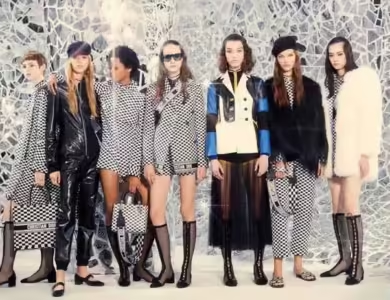
Nigeria is an energetic, socially and generally different country. This article examines how its colorful past and dynamic present craft its unique identity. Nigeria’s diversity stems from numerous ethnic groups. Each group enriches the nation’s cultural fabric. The country’s history spans ancient empires, colonial impacts, and the struggle for independence. These elements shape Nigeria today. Modern Nigeria blends tradition with innovation. Cultural festivals, art, and music reflect this mix. Even in betting, traditional games blend with modern sports wagering. This fusion highlights Nigeria’s ability to integrate and innovate. Such a diverse heritage and adaptive culture make Nigeria distinct on the global stage..
Historical Overview
Nigeria’s set of experiences is rich and different. It once contained strong realms like the Hausa-Fulani, Yoruba, and Igbo. These realms were free and strong before the English showed up. In 1914, the English solidified these regions into a solitary province. Nigeria acquired autonomy and laid out self-government in 1960. This was a vital change in its set of experiences, introducing another time of development and self-government.
Going from many kingdoms to one nation shows how complex Nigeria’s past is. Each part of its history adds to the country’s deep and varied identity. From strong ancient kingdoms to a single united nation, Nigeria’s history is full of important changes. These changes helped shape what Nigeria is today. They have made it a diverse and dynamic country with a rich cultural heritage that continues to grow and evolve.
Cultural Richness
Nigerian Culture is a lively patchwork of several ethnic groupings. Each community adds its own unique flavor to the nation’s identity. Music, art, and festivals play central roles in Nigerian life, celebrating the variety and richness of its heritage. Signature events like the Argungu Fishing Festival highlight these cultural treasures. Such festivals not only entertain but also preserve and teach the traditions of various groups. They bring people together, showcasing the unity and diversity of Nigeria. This cultural blend, where ancient customs meet contemporary expressions, forms the heartbeat of Nigerian society.
Economic Dynamics
Nigeria is Africa’s biggest economy. It is notable for its oil, despite the fact that it has a lot more extensive economy. Innovation and horticulture are extending quickly. Urban communities, for example, Lagos and Abuja are flourishing business centers. These cities drive Nigeria’s economic growth. The diversification of Nigeria’s economy contributes to its worldwide stability and strength. This makes Nigeria a major force in Africa.
Nigeria’s ability to develop various industries is key to its economic success. Beyond oil, Nigeria is expanding into new areas. These include technology, renewable energy, and agriculture. Such growth attracts investments from around the world. Nigerian cities are becoming hubs for innovation and commerce. This diversification creates jobs and improves living standards. Nigeria’s approach to developing multiple sectors helps it impact the global economy. With such progress, Nigeria continues to lead economically in Africa and beyond.
Religious Influence
Religion plays a significant part in Nigerian culture. The nation is strictly different, with Christianity, Islam, and various native religions. These religions shape everyday life for many Nigerians. Religious festivals are key events, joyously celebrated and showcasing Nigeria’s spiritual diversity. These celebrations display the unique traditions of each faith and unite communities. They reflect Nigeria’s varied religious landscape. Events like Eid, Christmas, and traditional rituals are more than just gatherings; they are vital cultural and social moments. They underline the importance of religion in Nigerian society, fostering unity and cultural richness among its diverse populations.
Modern Issues and Endurance
Nigeria grapples with issues like political instability and corruption. Regardless of these obstacles, the soul of its kin stays whole. Cross country drives are in progress to further develop training, medical care, and foundation. These programs aim to improve the quality of life throughout the country. Such initiatives highlight Nigerians’ resilience and drive to overcome obstacles and create a better future for all citizens.
Worldwide impact and prospective futures
Nigeria significantly influences the world, especially with its music and films. Afrobeats and Nollywood movies have gained fans across the globe. These cultural exports show Nigeria’s power on the international scene. The country has room to grow even more. Nigerian arts keep spreading, adding to the world’s cultural mix. This strengthens Nigeria’s global standing. Artists like Burna Boy and films like “The Wedding Party” are examples. People everywhere enjoy these. They learn about Nigerian life through them. As more people appreciate Nigerian culture, the country’s influence expands. This makes Nigeria an important and vibrant contributor to global arts and entertainment.
FAQs:
1. What are the critical ethnic groupings in Nigeria?
Nigeria is home to more than 250 ethnic social occasions, the three greatest of which are Hausa-Fulani, Yoruba, and Igbo. Each group has its own specific manner of life, language, and customs.
2. Which authentic occasions impacted Nigeria’s personality?
The ascent and fall of antiquated realms, the impact of expansionism, and Nigeria’s battle for freedom, which finished in 1960, are huge authentic occasions. These occasions significantly affected the nation’s political, social, and social climate.
3. How does Nigerian culture mirror its variety?
Nigerian culture is reflected in various kinds of craftsmanship, music, dance, and celebrations. Comprehensive developments, for example, the Argungu Fishing Celebration feature the rich customs and common upsides of numerous ethnic gatherings.
4. Which job does religion have in Nigeria?
Religion has a tremendous impact in Nigeria, as the general population rehearses Christianity, Islam, and numerous native beliefs. Strict celebrations and ceremonies are critical far-reaching developments that make local area while featuring Nigeria’s otherworldly variety.
5. How is Nigeria’s economy organized?
Nigeria has a differed economy, with oil making an extensive commitment. Be that as it may, it is additionally expanding into new businesses like horticulture, innovation, and sustainable power, consequently uplifting monetary turn of events and strength.
6. What are a portion of the recent concerns that Nigeria faces?
Political insecurity, debasement, and infrastructural deficiencies are among the issues that Nigeria faces. Notwithstanding, drives are in progress to improve training, medical services, and general personal satisfaction for its occupants.
7. How have Nigerian music and motion pictures impacted world culture?
Nigerian music classes like Afrobeats and the nation’s entertainment world, known as Nollywood, have accomplished global conspicuousness. They affect overall mainstream society and help to bring issues to light about Nigerian traditions and stories.
8. What is the importance of Nigerian festivals?
Nigerian festivals are essential because they honour cultural history, foster unity among varied groups, and maintain traditional traditions. They function as venues for presenting music, dance, art, and culinary traditions.
9. How do I learn more about Nigerian culture?
Nigerian culture may be explored through a variety of mediums, including literature, films, music, and participation in cultural events. Engaging with Nigerian communities and their cultural traditions might also yield useful information.
10. How can I help promote Nigerian culture?
You may help to promote Nigerian culture by sharing your experiences, supporting Nigerian artists and companies, and creating awareness of the country’s rich legacy via social media and community participation.
Crafting Success: My Experience in Digital Marketing and Link Building
I’m Mohammad Raza, an old pro in web-based computerized showcasing, content creation, and external link establishment. With huge experience working with clients from one side of the planet to the other, I spend significant time in creating advanced systems that consider social contrasts and market patterns. My work in content creation is influenced by a thorough grasp of global cultures, such as Nigeria’s rich and diverse legacy, which allows me to create interesting, SEO-optimized material that appeals to a wide range of consumers.
In terms of link building, I’ve built a network of high-traffic, credible websites spanning a wide range of categories. My expertise focuses on obtaining high-quality backlinks that improve search engine results
and increase organic traffic. Whether by means of instructive articles, top to bottom aides, or socially nuanced pieces, for example, an assessment of Nigeria’s assorted culture, I ensure that content reverberates naturally with its target group, cultivating long haul associations and further developing mindfulness.
I’m excited about giving outcomes driven arrangements that are customized to the particular requirements of associations all through the globe. My services attempt to increase online visibility, amplify brand voices, and encourage interaction through smart content and link-building strategies.
Conclusion
Nigeria’s narrative is marked by resilience and diversity. Its rich and complex cultural and historical tapestry showcases the enduring strength and vibrancy of its people. As Nigeria progresses, it persistently demonstrates the robustness of its culture. This exploration highlights Nigeria’s substantial presence on the global stage, underscoring its importance as a dynamic and influential nation.
Call to Action:
Go along with us as we observe Nigeria’s vivid culture and rich history! Find the rich customs and creative soul that describe this energetic country. There is so much to learn, whether you are interested in historical civilisations, current artists, or the blending of traditions in modern life. Share your opinions and experiences with Nigeria in the comments section below, and don’t forget to spread the word about the wonderful cultural tapestry that makes Nigeria so distinct. Let us continue the discourse and enhance our respect for this amazing country!



